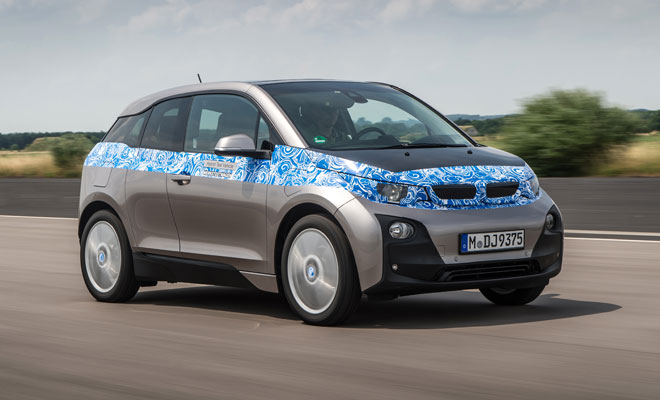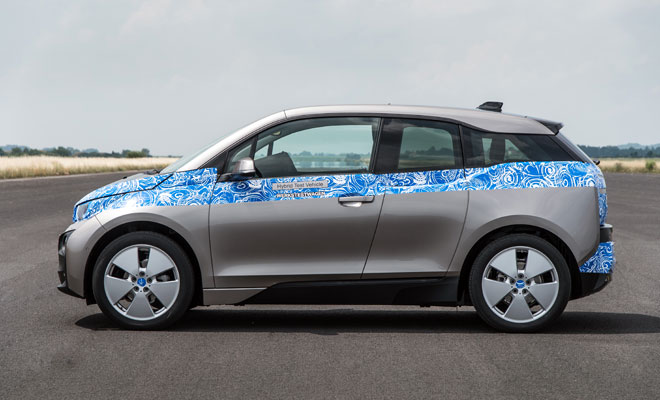by Lem Bingley 
I guessed wrong when I predicted that BMW might punt its i3 electric car out into the market with a premium price. North of £40,000 seemed likely, or roughly 5-Series territory, justified by its bleeding-edge, carbon-fibre and aluminium construction. Instead the company has confirmed a price below that of a conventionally built 320d Efficient Dynamics saloon.
The first i3s will arrive in November with a UK retail price of £25,680 on the road, admittedly after a £5,000 contribution from the government’s plug-in car grant. That’s just a couple of hundred pounds adrift of a Nissan Leaf in top-of-the-range Tekna trim – though no doubt the cost of the BMW will be inflated by options that come as standard in the Nissan.

Alternatively, customers can lease the i3 for 36 months by paying a one-off £2,995 followed by monthly payments of £369, with their usage capped at 24,000 miles. The rental works out at £15,910 over three years, after which you hand the car back to BMW. That may not sound very attractive but having consulted a handy car finance calculator it seems pretty competitive, and lands in the same ballpark as personal-lease deals for the 320d mentioned above.
The best payment route depends on depreciation. Which naturally demands a dose of guesswork for a new class of car not yet on sale. The first Leafs, for comparison, are now three years old and worth about £11,000. The i3 ought to fare better.

Assuming BMW’s lithium-ion battery survives at least as well as Nissan’s, there ought to be plenty of life left in an average-mileage, three-year-old i3. And indeed the battery should have a better chance at longevity, given that the Leaf’s 24kWh bundle of cells is passively air-cooled, while the i3’s 20kWh pack is actively kept at optimum temperature using a fluid that can be both heated and cooled.
As standard, the i3 will support charging at a 7.4kW rate – roughly double what can be drawn from a standard domestic socket – sufficient to take the BMW EV from flat to 80% full within three hours. BMW has designed its own wallbox for home charging at this rate. The car can also be hooked up to an ordinary three-pin outlet, requiring eight to ten hours for a full charge. A 50kW direct-current option is also supported, sufficient to provide 80% of charge in 30 to 60 minutes.

The long-awaited launch of the i3 is still a week away, so for the moment some details remain unclear. For example, the lease costs may or may not include access to BMW’s DriveNow, a car-sharing service that provides access to alternative cars when the battery-powered i3’s 100-mile range isn’t sufficient. DriveNow is currently live in four German cities plus San Francisco, but has yet to launch in the UK.
Costs for the alternative extended range i3 – one with a 650cc two-cylinder petrol engine that can generate its own electricity on the go – are also yet to be confirmed.
BMW i3 is surprisingly keenly priced
23 July 2013
Read more about: BMW BMWi electric cars



